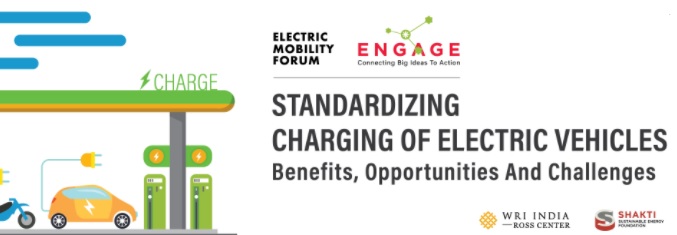Opinions/Videos
Transport, Climate Action, and Sustainable Development in Islamic Development Bank Member Countries
2020
Author(s): SLOCAT Partnership and Islamic Development Bank (IsDB)
This infographic summarises the major findings of the two reports “Low-Carbon Transport for Development” and “Transport, Climate Action and Sustainable Development“. It shows the identified policy recommendations and actions valuable for member countries of the Islamic Development Bank (IsDB).
This infographic was produced by Edna Odhiambo, a participant of the Young Leaders in Sustainable Transport in 2019. Active mobility accounts for almost half of all daily trips in Nairobi making it the most commonly used means not to mention a low-carbon option that should be encouraged.

WEBINAR | Retrofitting for Electric Vehicles
2019
Author(s): World Resources Institute (WRI)
India is moving rapidly towards cleaner transportation with the growth in electric mobility. The Indian government has introduced suitable policy frameworks to promote electric vehicles, with significant R&D efforts towards developing EV components and sub-systems considering local tropical conditions.
Webinar | New Mobility Responses to COVID 19 Lockdown
2020
Author(s): World Resources Institute (WRI)
The COVID-19 lockdown has brought our cities to a standstill, with necessary restrictions on people’s movements and the stoppage of all transport services. But transport is still needed- to help essential workers reach their offices, to help citizens visit hospitals and fulfil other emergency needs, and to help deliver groceries and other essential services to neighbourhood stores and people’s homes.
India's Electric Mobility Opportunity - OP Agarwal
2017
Author(s): World Resources Institute (WRI)
World Resources Institute India’s CEO, Dr. OP Agarwal speaks on India’s ambitions for full vehicle electrification, and the critical questions that need to be answered to make that possible.
Webinar | Battery Monitoring – Importance and Solutions for Public Transport Companies
2020
Author(s): World Resources Institute (WRI)
We all know how much efforts have been put into bringing electric buses in India. Now as a result of which we are slowly starting to see the positive changes and impacts of these efforts as there are many electric buses running in different Indian cities and states with their own special business model, battery and technology characteristics, operators, etc.
Transport Sector Stakeholder Consultation| Session 2 Towards Decarbonization of Urban Transport
2020
Author(s): World Resources Institute (WRI)
Electric mobility is no longer a want, but a necessity for decarbonizing the urban transport sector. Meeting India’s electric mobility goals requires a mix of battery swapping and charging infrastructure, increased in-house production of sub-systems, enhanced revenue sources, rebalancing of expenditures within state and city budgets and fare adjustment.
Integrated and Sustainable Urban Transport Systems for Smart Cities in India (Smart SUT)
2020
Author(s): Ministry of Housing and Affairs (MoHUA), Deutsche Gesellschaft fuer Internationale Zusammenarbeit (GIZ) GmbH
In its project update from May 2020 the Integrated and Sustainable Urban Transport Systems for Smart Cities in India (Smart SUT) reports on its national activities. The project is implemented by Deutsche Gesellschaft fuer Internationale Zusammenarbeit (GIZ) GmbH and the Ministry of Housing and Urban Affairs (MoHUA) and funded by the German Federal Ministry for Economic Cooperation and Development (BMZ).
Electric Mobility in Kenya
2019
Author(s): Deutsche Gesellschaft für Internationale Zusammenarbeit (GIZ) GmbH
This brochure answers frequently asked questions about about electric mobility and addresses the doubts and concerns surrounding the viability of electric mobility in Kenya.
Comments on Draft Electricity (Rights of Consumers) Rules, 2020
2020
Author(s): Alliance for an Energy Efficient Economy (AEEE)
The Ministry of Power has proposed a new set of rules for the rights of consumers and prosumers. The draft rules specify a common minimum standard of performance for the utilities across the nation, with an objective to provide consumers with better services.



